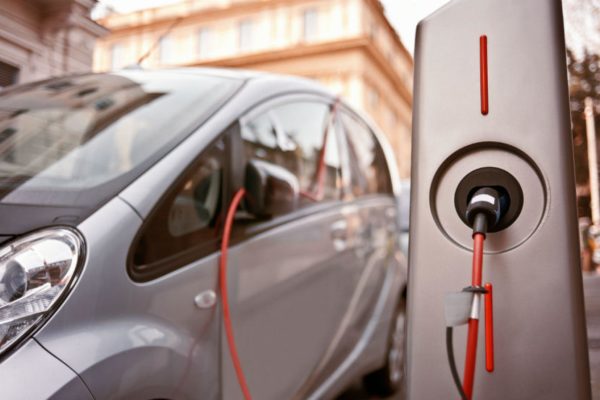Texas House Bill 427 proposes a constructive adjustment to state transportation funding. Lawmakers would be remiss not to make it. The bill would establish an annual fee, in addition to registration, for electric ($200) and hybrid ($100) vehicles. The fee boosts state transportation revenues somewhat in the near term, but the long-term significance is far greater given the seismic changes underway in how we get around.
It takes about $6 billion each year to keep Texas moving. That number counts only the most conventional highway projects in the state’s transportation improvement program, and it multiplies quickly when nontraditional road projects, operating costs of the Texas Department of Transportation, and metropolitan and rural transit systems are included.
Per-gallon motor fuel taxes paid by road users historically have covered a good chunk of those highway costs. But the state gas tax has been stuck at 20 cents per gallon for 30 years. Gas tax revenues also cannot keep pace with vehicle use and rising highway construction costs. As cars and trucks grow more fuel efficient and electric vehicles become more popular, per-gallon tax collections shrink relative to miles driven on Texas roads.
Ideally, legislators would raise the state gas tax to answer these trends. Instead, they won approval to divert state sales tax and oil and natural gas production (severance) tax revenues to supplement road funding. Those taxes are not road user fees, and both support other important public purposes including K-12 education, the rainy-day fund, and general fund expenditures such as health and human services.
The bill, introduced by state Rep. Ken King of Hemphill, will help to recoup infrastructure costs from hybrid and electric vehicle drivers who currently pay little or no gas taxes. Projected near-term revenues are about $55 million, but that number will grow with Texas’ electric vehicles usage. In mid-2022, the Ford F-150 — one of Texans’ favorite vehicles — will hit the market in electric form, and Tesla’s Gigafactory could produce cars before year’s end.
Still, HB 427’s significance may be greater in the long term. The fee would help Texas prepare for a transportation future that is less reliant on petroleum. Authorizing this new revenue source would begin to reconcile Texas transportation funding with the future of 21st century mobility. Experts agree that future will be increasingly shared, electrified and autonomous, and it will demand new approaches to funding and investing in transportation.
As researchers who study mobility and public policy, we think this proposal is worth doing. The fee is unlikely to suppress demand for renewably fueled vehicles in Texas. Drivers considering such a purchase would also weigh anticipated savings from avoided fuel costs in their decision. Still, a lower EV fee would be more equitable. By comparison, drivers of conventional internal-combustion engine vehicles pay about $103 annually in Texas gas taxes, and the average electric vehicle fee across states that collect them is $120 per year. Later, legislators can examine distance-based road user charges to align fees with road usage.
The current bill directs the revenues to the state highway fund, restricting them to road and bridge investments. That might be another area of the bill for lawmakers to revisit. Forward-thinking adjustments would allow the fee to support other transportation modes and policy measures to increase electric vehicle market share (e.g., support for charging infrastructure).
Transportation contributes more than a third of Texas’ carbon emissions, and per capita motor fuel use in Texas is 20% above the national average. The future of mobility demands transportation funding and investment practices that support a sustainable course. The Legislature should reimagine the laws for transportation revenue collection and expenditure to enhance sustainable mobility.
House Bill 427 is a step in the right direction. The same proposal was introduced in 2019 but did not advance beyond the transportation committee. Letting that happen again would be a wrong turn for the future of mobility and more sustainable transportation in Texas.
Gian-Claudia Sciara is an assistant professor of community and regional planning at the School of Architecture at The University of Texas at Austin.
Andrew Waxman is an assistant professor of economics and public policy at the Lyndon B. Johnson School of Public Affairs at The University of Texas at Austin.
A version of this op-ed appeared in the Dallas Morning News, Houston Chronicle and the Lerado Morning News.




